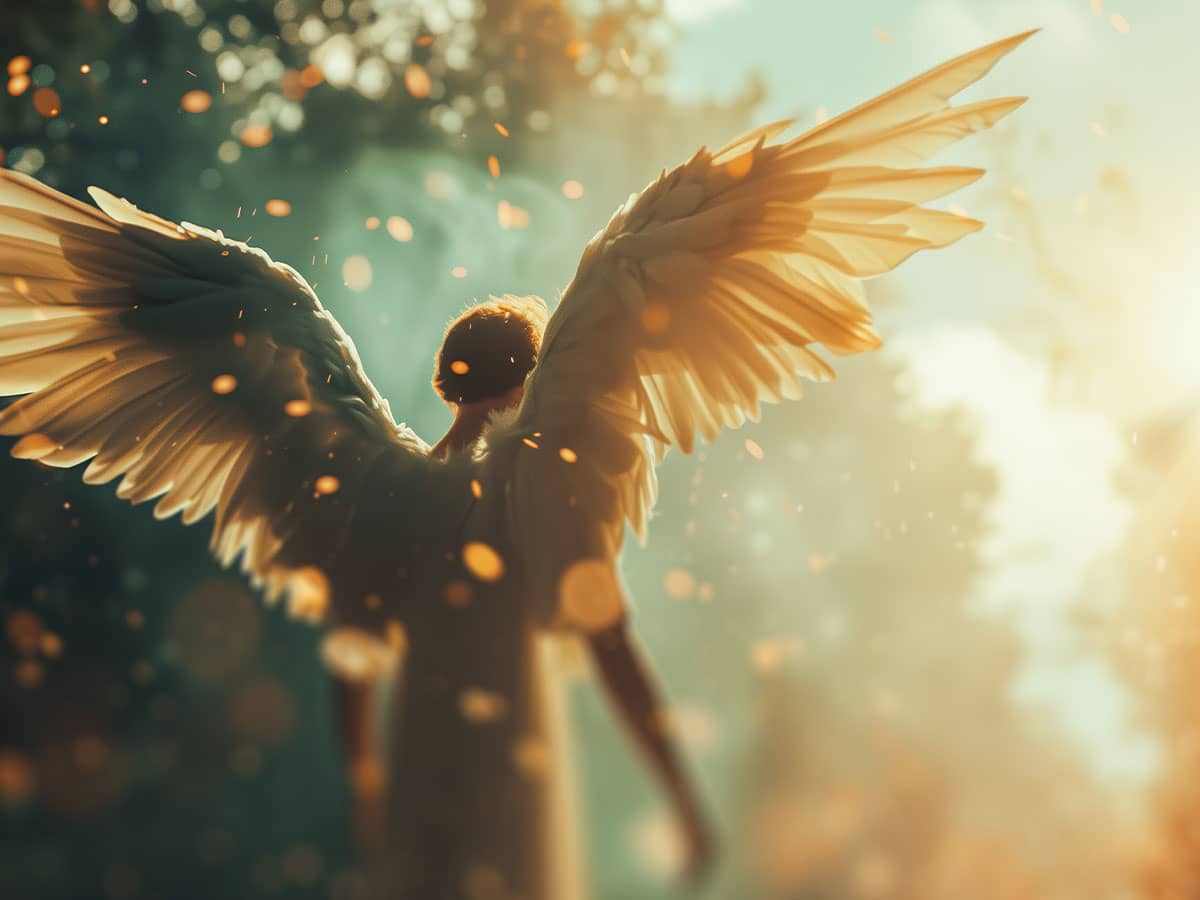
Faithfulness is shown by staying put. The trees whose wood
is most sought after grow on the most rugged slopes of the
mountain.
The cross seems heavy at times, doesn’t it?”
In asking him the question, I knew I was standing in
front of a man who carried his cross with admirable faithfulness.
“Perseverance is fundamental,” he clarified. “ ‘Deny yourself,’
Jesus said, ‘and take up your cross every day.’ There are ‘spring’
Christians who disappear in the winter. They’re like the birds
that constantly migrate in search of warmer climate. An authentic
Christian is characterized by faithfulness. Have you heard of
Francis Nichol?”
“Never,” I confessed.
“I don’t know much about him either, except a phrase that is
attributed to him, and a while back it left me pensive: ‘When you
finally fully understand the root of the word success, you discover
that it means ‘keep going forward.’ ” I think the picture it’s trying
to paint is one of a tree that endures bad weather, but it remains
there, where it was planted.”
“At times,” I risked saying, “the wind can blow so hard that it
threatens to uproot us.”
“Far from it,” he countered determinedly. “The storm serves
to strengthen us. Did you know that logging companies not only
have people who cut down trees but also people who specialize in
reforestation? They know where to plant a tree so its wood has
a better quality. When they go out to reforest a mountain, they
scan over its slopes until they find what they call stress factors.”
“Stress factors?”
“Yes, the stress factors are the areas on the mountain more
exposed to winds and storms. Right there, where the stress factors
are the most obvious, is where they plant the trees. From
day one these little trees understand the cruelty of winter and
the rigors of the summer. When strong storms come along, they
know that their only option to survive is to sink down their roots
deeper. And in times of extreme drought, they sink those roots
even farther down to find subterranean springs. During this difficult
process their trunks get harder. Of course not all survive,
but those that do will have better wood . . . the most desired and
sought after.”
“Then there’s no doubt that suffering always strengthens us
when the wind isn’t so strong as to knock us over.”
"That’s how it is with trees, but not with us,” my old pastor
observed. “That’s why we have faith. Anxiety is able to keep us
awake all night, but faith is a marvelous pillow. The most important
thing is not starting the race, but rather the unwavering
determination to reach the finish line. Let me tell you a story.”
It was his introduction phrase, so I got ready to listen to
another one of his interesting tales.
There’s a little anecdote of Leonardo da Vinci, the great painter,
sculptor, and inventor, about his painting The Last Supper, one
of the most copied and sold works of art in all of history. It took
da Vinci twenty years to finish, since it was so difficult at that
time to find people who could pose as models. In fact, he had
problems in starting the painting because he couldn’t find a model
who could represent Jesus, someone who could reflect in his face
purity, nobility, and the loveliest feelings. Also, the model needed
to possess extraordinary manly beauty. Finally, he found a young
man with these characteristics, and it was the first figure of the
picture he painted.
Later, he went looking for the twelve apostles, whom he
painted together, leaving Judas Iscariot’s spot open, since he
couldn’t find a suitable model. It had to be a person of mature age
who had a face with the traces of betrayal and greed. That is why
the painting remained unfinished for a long time, until they told
him of a terrible criminal who had been taken prisoner. Da Vinci
went to see him, and he was exactly the Judas he wanted to finish
his work. So he asked the mayor to allow the prisoner to pose for
him. The mayor, knowing the master’s fame, gladly accepted and ordered that the prisoner be taken to the painter’s studio, chained
and accompanied by two guards.
During all that time, the prisoner showed no signs of emotion
for having been chosen as a model, but remained completely
quiet and distant. Finally, when da Vinci was satisfied with the
result, he called the prisoner over and showed him the painting.
When the prisoner saw it, he was greatly impressed and fell to
his knees, crying. Surprised, da Vinci asked why he was crying,
to which the prisoner responded: “Master da Vinci, don’t you
remember me?”
After looking at him carefully, Da Vinci answered him, “No,
I have never seen you.”
Crying and asking for forgiveness from God, the prisoner
said to him, “Master, I am the young man you chose nineteen
years ago to represent Jesus in this same painting.”1
My old pastor was tired by the time he had finished his story.
Without saying anything to me, he closed his eyes, and I thought
he was sleeping.
I slowly got up to leave the room and let him rest, but when I
put my hand on the doorknob, I heard him calling me. With his
hand, he was making signs for me to come close.
“Travel on the road of the cross until the end,” he told me.
His eyes had a layer of water covering them, on which a smile was
cradled. “Don’t give up. The cross has its price . . . but there is
nothing more beautiful, or more worthy of embracing.”
The night was like a dark, warm cloak when I left the house.
The moon had sketched my shadow, and beneath its aura I made the firm decision that I had to write all of this in a memory journal—
the journal that you are reading right now.
I stopped once again in front of the rosebush planted in that
large tub. The white roses were still standing straight up, and
among them, the light night breeze was swaying the red ones from
the previous Monday, which were still fresh and moist. To their
side, a new one was beginning to open. Its few petals, though still
in a tight bud, were a purple color that almost bordered on black.
I stood there, next to the door, and looked up at the sky, at
the small bits of night that wrapped around the stars.
“God is in love with us,” my old pastor had told me. “Nature
offers us a thousand gifts that demonstrate the love God has
for us.”


